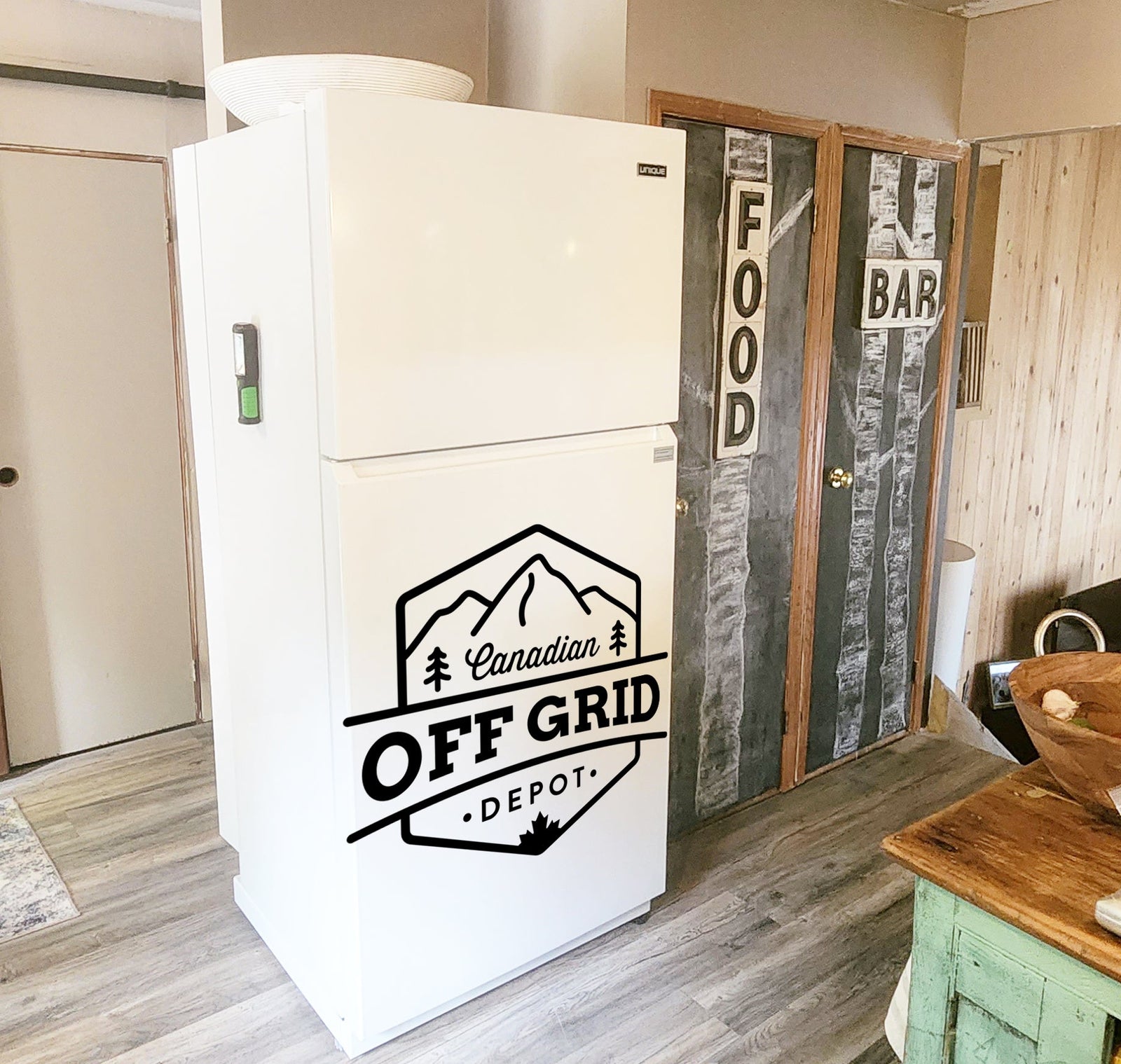Off-Grid Propane or Solar Refrigerator
Are you looking to install an off-grid solar refrigerator in your off-grid cabin? Perhaps your wondering whether an off-grid propane refrigerator is the better option. Both perform the same job, but one utilizes fossil fuels while the other depends on a sustainable source. Both an off-grid propane fridge and a solar-powered fridge have pros & cons, so if you’re living off the grid in Canada and do not have access to AC power, you’re considering one or the other.
If you have a year-round cabin or an off-grid home, you require a long-term investment in cooling and freezing your food and drink. A cooler will not suffice. Even if your off-grid accommodations are fishing or hunting camps that you occasionally visit for a week or more, a robust propane or solar-powered refrigerator will ensure cold food and beverage storage for your lengthy stay.
Propane fridge vs. Solar-powered fridge
Understanding the pros & cons of both the solar-powered fridge and propane-powered fridge will allow you to choose the best solution for your off-grid needs. Canadian Off-Grid Depot sells and installs both varieties of off-grid refrigerators. As a result, we have an intimate knowledge of each type and sell several models of solar and propane fridges ranging in cubic foot capacity to meet your needs.
Solar-powered refrigerators can be wired into your existing solar power system supplying electricity to your cold food storage needs. These systems store the excess power captured in reserve batteries when the sun isn't shining. This way, your solar-powered appliance will continue to run during the night and through times of low sunlight.
Once a solar-powered system is installed, running another appliance doesn’t add to the cost.
Propane Off-Grid Refrigerators Pros and Cons
Propane-powered refrigerators offer consistent power through inclement weather. These off-grid fridges are simple to install and require no electricity to operate. Propane-powered refrigerators have been used for over six decades and are highly reliable so long as your propane supply is flush.
Propane fridges are low-cost to set up and operate. All that is required are a propane supply tank, regulator, and gas piping. These off-grid propane fridges can last decades with minimal maintenance.
Due to their technology and niche market, propane fridges are more expensive than solar fridges. For example, a ten cubic ft propane refrigerator costs upwards of $2849 vs. a ten cubic ft solar refrigerator that will run you around $1949. One of the reasons for this price difference is that a propane fridge’s cooling coils, which use ammonia, sodium chromate, and water, are intricate and more complicated to manufacture than a traditional fridge that incorporates a condenser/compressor, liquid refrigerant and simple refrigerant lines.
Propane fridges, once turned on, take 4-6 hours to get down to temperature, use, on average, 1-1.5lbs of propane per day, and are to be vented outdoors using a direct vent system or a CO monitor interlock system with adequate ventilation.
If you do not intend to add solar to your off-grid camp or build, propane refrigerators are your best solution.
Solar Off-Grid Refrigerators Pros and Cons
Solar fridges are simple to install if your solar power system is already connected and operating.
Solar refrigerators incorporate a DC compressor and controller, allowing them to operate at half the energy draw per day as standard on-grid refrigerators. An off-grid solar fridge can run on 12/24dc direct from your 12 or 24v battery bank. This allows you to leave your refrigerator on at camp. But remember to turn off your inverter when you are not there. Inverters draw from your solar battery bank. Depending on the size of your solar setup, you want to minimize your draw on the batteries when you are not there.
If you are running a 48vdc system for your solar-powered refrigerator, you can use a 120vac to 24vdc adapter, which is still more efficient than a standard on-grid refrigerator.
Once your solar power system is up and running, your off-grid appliances are free to operate, and should you turn your off-grid fridge off when you are not at camp, they are quick to cool down once you return.
To run any solar-powered appliance, you will require upfront costs to install a solar power system to run the appliances. For example, suppose you only want to power the solar refrigerator from a simple solar power system. In that case, your costs will range from $1200-$2000 Canadian, depending on your battery selection, panel size, and mounting options.
If you have a prolonged period of no sun and your battery system is not sized accordingly, you risk your fridge turning off and potentially losing your cold storage food.
Additionally, depending on the distance from your battery bank to the solar fridge’s location, you will have to run large-gauge wiring, which is quite expensive.
So, you see that the cost to purchase and run a propane-powered fridge vs. the cost to purchase and run a solar-powered fridge will depend on several factors. Is it worth the upfront cost of installing a solar power system to run your less expensive solar fridge, or is the more expensive propane fridge the better fit for your off-grid cabin for the lessor upfront costs - dependant on the price of propane for the life of your off-grid fridge?
Whatever you decide to buy, Canadian Off-Grid Depot sells, installs, and services your off-grid solar and propane fridges. Enquire with our experts on what type off-grid refrigerator would best suit your needs.







